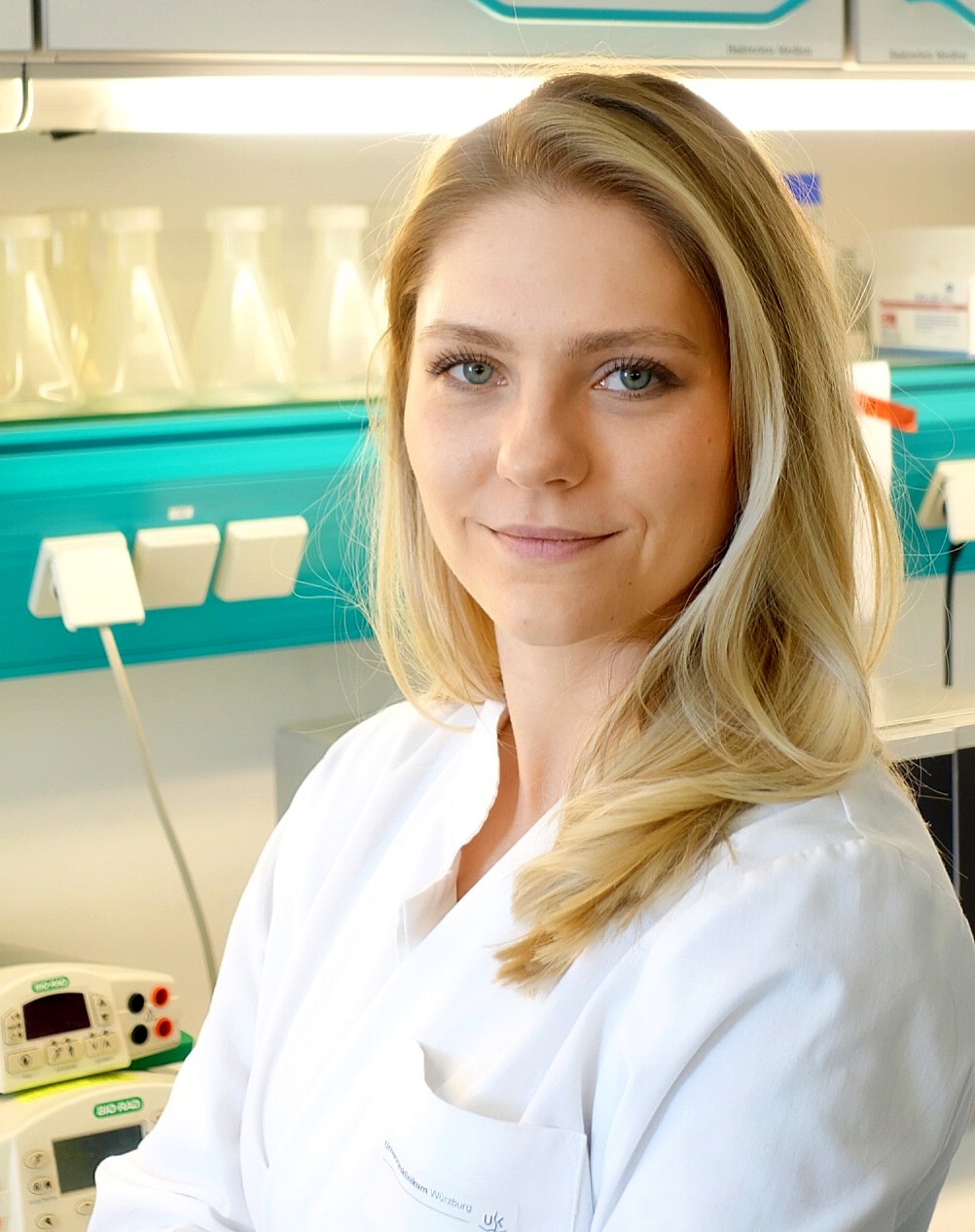Stefanie Klostermeier
Stefanie Klostermeier
Masterstudentin
Constructing a 3D cell culture model of Alzheimer’s disease using a 3D alginate-based matrix
Betreuer: Prof. Doo Yeon Kim (Genetics and Aging Research Unit, Institute for Neurodegenerative Disease, Massachusetts General Hospital, Harvard Medical School, USA) and Prof. Aldo R. Boccaccini
More than 40 million patients suffer from Alzheimer´s disease (AD) worldwide with no cure. Genetically engineered transgenic AD mice have been used as a standard preclinical model for testing potential AD drugs. However, these AD mouse models do not comprehensively recapitulate the pathogenic cascades observed in AD patients.
Previously, the group of Prof. Doo Yeon Kim developed a 3D human neural cell culture model of AD based on genetically engineered human AD neural stem cells. After 3D-differentiation in Matrigel, AD neural stem cells developed key pathogenic markers of AD, which has not been feasible with current AD mouse models. However, the heterogenous and undefined nature of Matrigel limits the use of our 3D AD cellular models for basic mechanistic studies and drug testing. Moreover, the batch-to-batch variation of growth factor contamination make it difficult to achieve homogenous neural differentiation of human stem cells.
In the present research project, a 3D human neural cell culture model of AD based on a cross-linked 3D alginate-based matrix, which does not contain any growth factors, is investigated. By combining proteins and alginate, a novel 3D scaffold system suitable for differentiating human neural stem cells is generated. To optimize the 3D matrix for afferent human stem cells, we add neural adhesion proteins with various concentrations and their impact on cell survival and differentiation is tested. Further studies involve analysing the impact of the new alginate-based matrix on the development of AD pathology including Abeta plaque and neurofibrillary tangle.
The project is being carried out at Genetics and Aging Research Unit, Massachusetts General Hospital, Institute for Neurodegenerative Disease, Harvard Medical School, Boston, USA.

